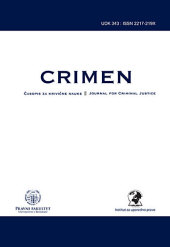U KOJOJ MERI DNK MOŽE PRUŽITI ČVRST DOKAZ?
TO WHAT EXTENT CAN DNA PROVIDE ROBUST EVIDENCE?
Author(s): Jovana SretenovSubject(s): Criminal Law, Criminology, Health and medicine and law
Published by: Правни факултет Универзитета у Београду
Keywords: DNA; forensic science; evidence; individualization; forensic identification;
Summary/Abstract: The author introduces the concept of DNA analysis for criminal casework starting with the definition of Forensic Science as an applied science which collects and analyses material traces found on crime scenes with the aim to determine the relationship between the trace and the crime incident, as well as to interpret and present the evidence in court. The paper explains how the field of science merges with the fields of law, policing and the wider political, social and economic context in which they all operate. Forensic DNA analysis and its roots in classical genetics, biochemistry and molecular biology are addressed, including key current challenges concerning forensic DNA analysis for crime purposes, which aim to explain laboratory results in court to people who have very limited knowledge of forensics and its methods and techniques. The use of DNA analysis for criminal casework after its introduction in the late 1980s is explained, including analyses of the history and current scientific and legal issues concerning DNA analyses. The difficulties that expert witnesses encounter in courts due to different principles that exists in law and science in general are also highlighted.
Journal: CRIMEN - časopis za krivične nauke
- Issue Year: 2014
- Issue No: 2
- Page Range: 231-239
- Page Count: 9
- Language: Serbian

